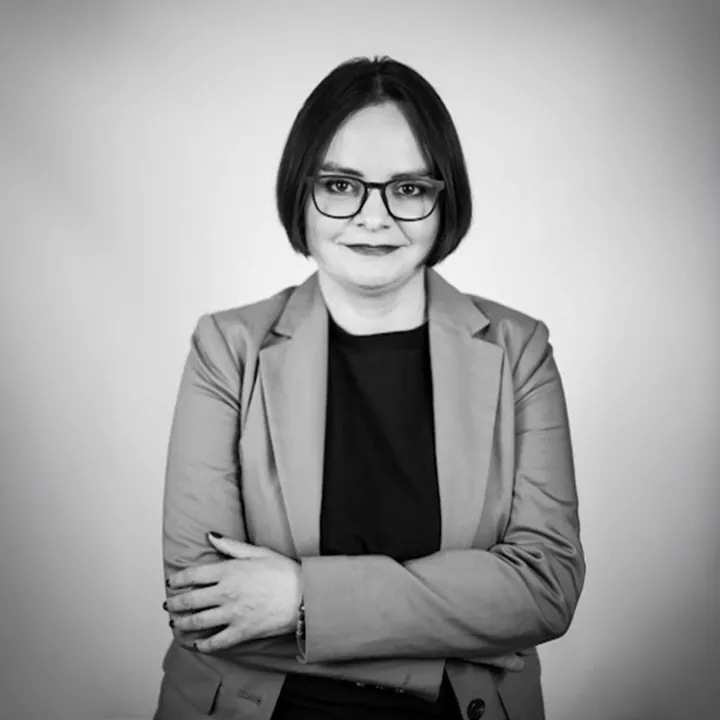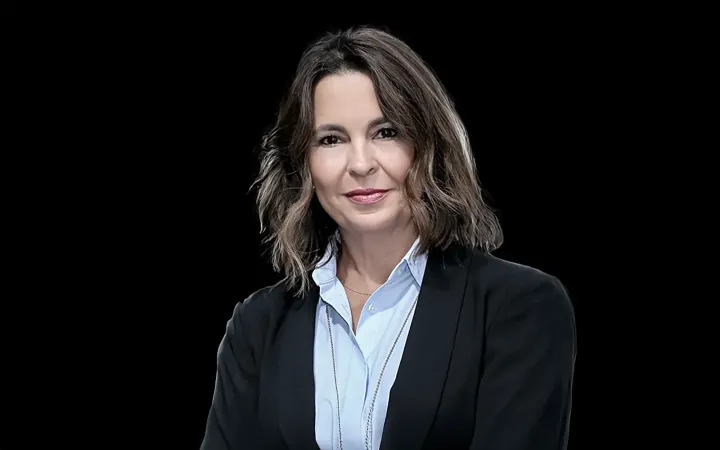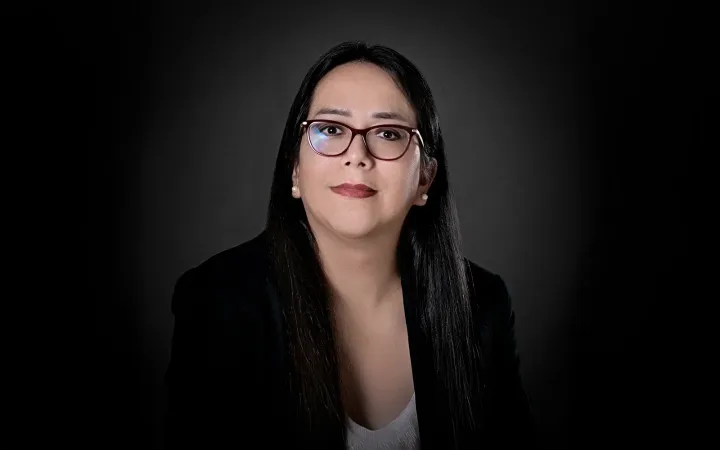Por Brenda Macías
Mañana 22 de noviembre de 2024, 30 años después del fallecimiento de Nancy Cárdenas, la capital de Coahuila reestrena una de sus obras, El día que pisamos la luna, borrador escrito a máquina y entregado a Mabel Garza —directora de la puesta en escena que hoy nos convoca y de Luz del Norte Teatro— vía Elena Madrigal de El Colegio de México, para unirnos a las actividades conmemorativas por el 90 aniversario del natalicio de Nancy y por los 30 años de su despedida de este plano terrenal.
Pasaron 30 años para reivindicar en Coahuila a Nancy Cárdenas, oriunda de Parras de la Fuente, lugar que la vio nacer y que al mismo tiempo la estimuló para conquistar la Facultad de Filosofía y Letras de la Universidad Nacional Autónoma de México, Yale University y la Escuela Nacional de Cine, Televisión y Teatro en Lodz, Polonia.
Lxs cronistas y amigues de Nancy Cárdenas, como Carlos Monsiváis, la llamaron mujer de vocación múltiple porque, así como dirigió teatro, lo escribió y lo actuó; fue locutora de Radio UNAM donde produjo, entre otros programas, la serie Nuevo Teatro, y también dirigió algunas piezas de radioteatro, entre ellas El cántaro seco de su autoría.
En 1971, Nancy Cárdenas fundó el Frente de Liberación Homosexual que impulsaría el Movimiento de Liberación Homosexual en México, hoy Movimiento de la Diversidad Sexual, y participó a la vanguardia en la primera Marcha del Orgullo Gay en México en 1978.
Nancy, la llamada “Parras Atenea”, visibilizó en el espacio público a las mujeres sáficas, porque en primera persona se reveló abiertamente como una de ellas, a pesar de la incomodidad que provocan. Lo hizo ante las cámaras y micrófonos del Noticiero 24 horas, de Jacobo Zabludovsky, del monopolio Televisa en 1973, el mismo año en el que la homosexualidad salió del Manual Diagnóstico y Estadístico de los Trastornos Mentales o del DSM, por sus siglas en inglés.
Trilogía lésbica en el teatro mexicano
De acuerdo con una entrevista a Nancy Cárdenas realizada por Elena M. Martínez y publicada en el Número 134 de fem —revista que se publicó entre 1976 y 2005 y conocida por ser la primera publicación periódica feminista de América—, Nancy Cárdenas explicó que El día que pisamos la luna forma parte de una trilogía de obras que abordan el tema del amor entre mujeres. En la trilogía se encuentra la comedia musical Claudine, de Colette, y Las amargas lágrimas de Petra Von Kant, de W.R. Fassbinder.
Antes de que la obra El día que pisamos la luna llegara a Saltillo, tuvo una efímera presentación el 8 de octubre de 1981, en el Teatro El Granero Xavier Rojas del Centro Cultural del Bosque en la Ciudad de México, y Mabel Garza fue espectadora de aquel hecho escénico que tuvo a Nancy Cárdenas como directora y actuando el papel de Marina; a July Furlong como Beatriz 1, a Nerina Ferrer como Teresa y a la primera actriz Angélica Aragón como Beatriz 2.
En esta oportunidad —a 43 años de aquel primer estreno— en el escenario de La Besana —uno de los bastiones del teatro independiente de Saltillo— Andrea Galindo, Martha Matamoros, Melisa Soto y Victoria López —cuatro de las mejores actrices que ha dado Coahuila— prestan su cuerpo, voz y energía para recuperar un lesbodrama o bollodrama, como se dice en el argot lésbico, y así reflexionar sobre cómo en las relaciones sexoafectivas entre mujeres no todo es miel sobre hojuelas.
En esta comedia que critica las formas tóxicas de amar en las que imperan las verdades a medias, la infidelidad y el desamor, el teatro político aparece y nos revela los estragos que dejó en las militantes y las activistas la masacre de estudiantes en la Plaza de las Tres Culturas de Tlatelolco, de aquel fatídico año de 1968. Ese hecho histórico se quedaría en la memoria del futuro (presente) de México como uno de los acontecimientos más claros de lo que es el autoritarismo de estado contra la población civil y nos mostraría las otras heridas y grietas que dejó la violencia: las emocionales. Pero también cómo, a pesar de la catástrofe, hay una posibilidad de porvenir.
¿Y qué tiene que ver aquí la llegada del hombre/onvre a la luna, se preguntarán? Creo que fue el pretexto perfecto que Nancy Cárdenas encontró para abordar la potencia de los montajes y para reunir a cuatro mujeres en un espacio a hablar de lo importante: el deseo, el amor lésbico, la infidelidad, la viudez, la codependencia, el consumo lúdico de la mariguana y todo aquello que queremos desaprender como el amor romántico desde la incomodidad porque para Nancy Cárdenas “la conciencia feminista es un incómodo tesoro”.
La selección musical de la obra
La selección musical de El día que pisamos la luna es la partitura emocional de la obra, es una guía que da sentido a la trama propuesta por el texto dramático. La lista de música seleccionada amplifica las emociones de las personajas y al mismo tiempo resonará —usando la terminología de Augusto Boal— en la espectactriz y el espectactor —de eso que llamamos público— para reforzar el acontecimiento teatral.
Las letras de este repertorio nos gritarán las constantes de la obra: el amor perdido, la vulnerabilidad y la lucha que enfrentamos al intentar dominar los apegos. La música, sin duda, le pone sal a la herida. Nos sitúa en un tiempo en el que las canciones de amor, despecho y seducción marcaron la educación sentimental en México.
La playlist es la muestra auditiva del melodrama y la posible tragedia que significa el amor romántico, porque como dice la poeta Cristina Peri Rossi, “salimos del amor como de una catástrofe aérea”.
Esta selección musical de autores icónicos como José Alfredo Jiménez, Armando Manzanero, Vicente Garrido, Agustín Lara, John Lennon, Paul McCartney, entre otros, nos permite asomarnos a la discoteca personal de Nancy Cárdenas. Sin duda, es otro personaje. Es la forma que Nancy, como autora, hoy está presente en la obra, es la DJ emocional de esta catástrofe que estamos a punto de presenciar.
El día que pisamos la luna de Nancy Cárdenas es un saltillo por la reivindicación de las diversidades sexuales en esta ciudad y un gran salto para la población LGBTIQ+ hacia su reconocimiento y respeto, aquí y ahora, en México y el mundo.
¡Principiamos!

Las opiniones expresadas son responsabilidad de sus autoras y son absolutamente independientes a la postura y línea editorial de Opinión 51.






Comments ()